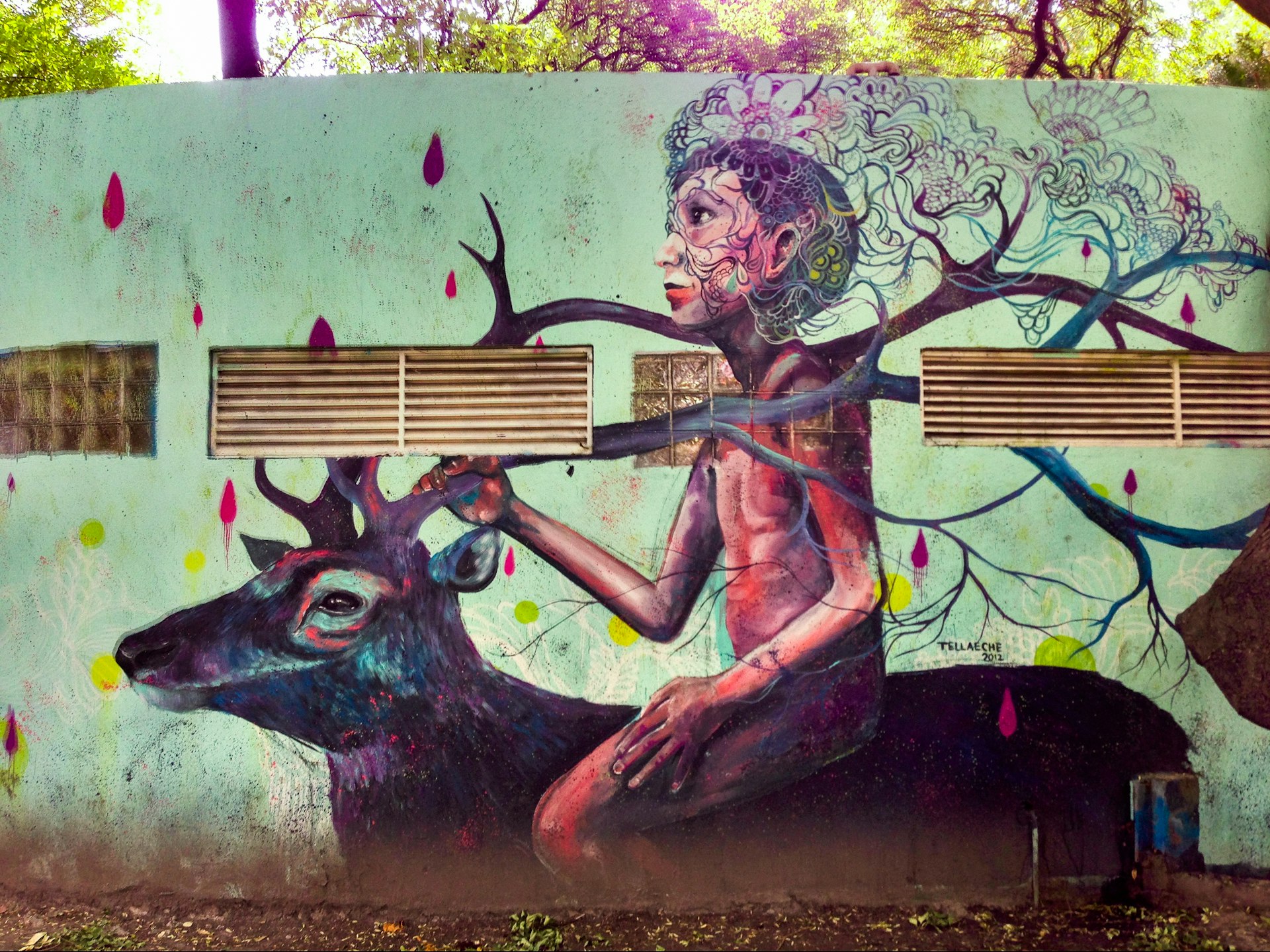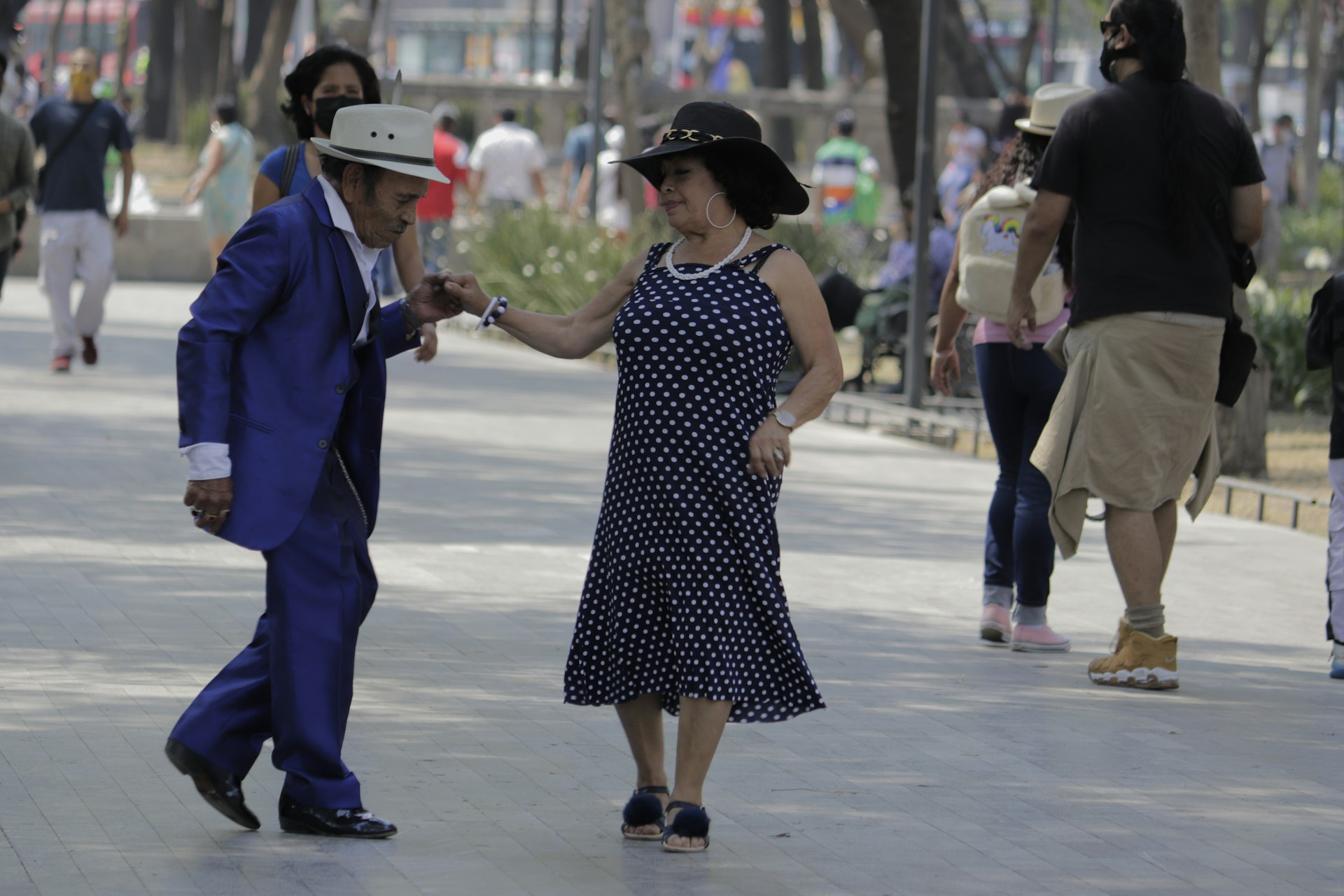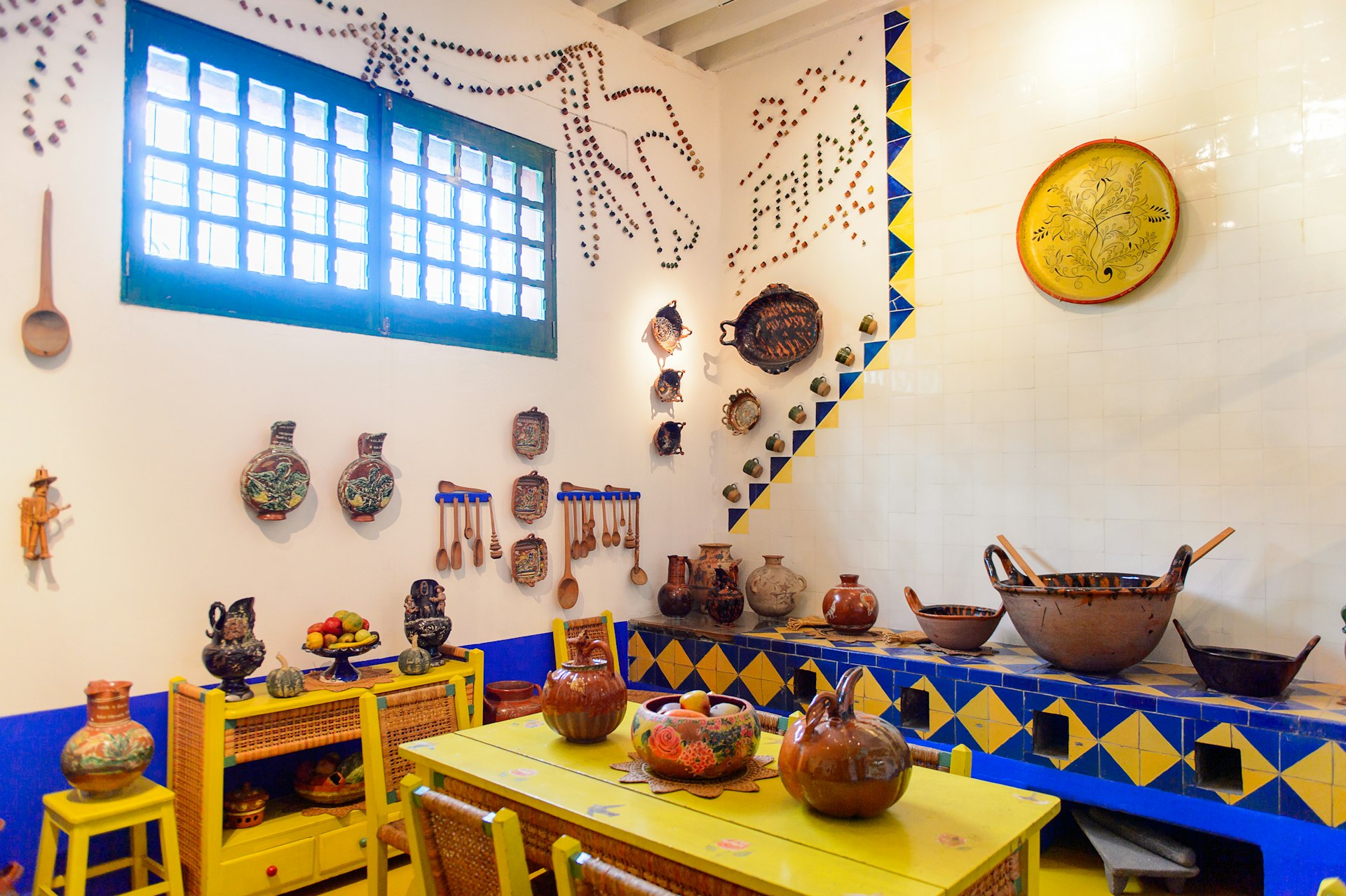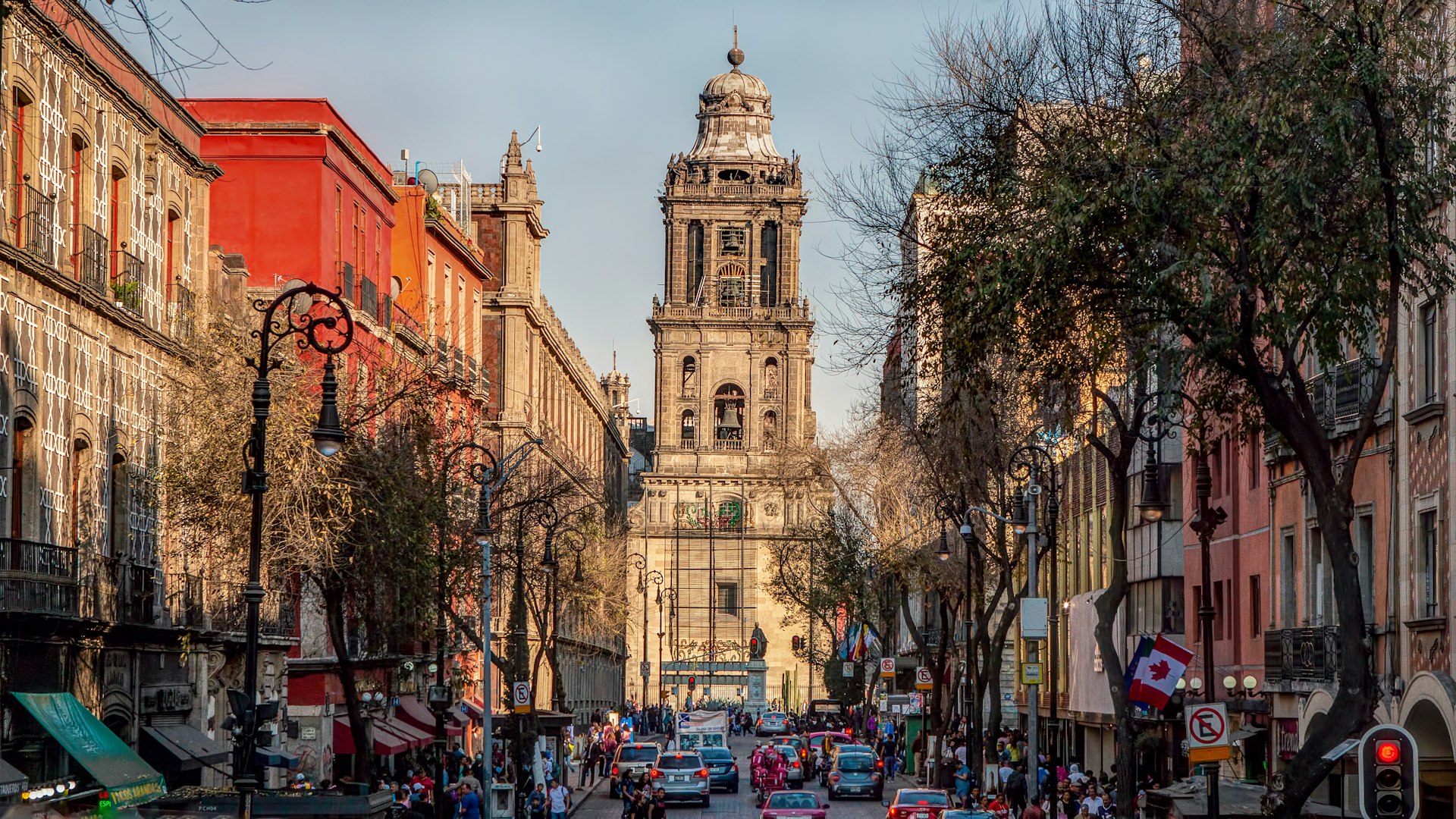Where you decide to base yourself in colossal Mexico City is a key consideration when it comes to planning your vacation. To help you pick the right area, we’ve pulled together our favorite walkable neighborhoods that are full of character and charm. It’s all a matter of what you’re looking for when you get there.
In the trendy Roma and Condesa hoods, the fiesta never stops as you tap into the spirited nightlife and culinary scene, while across town in Centro Histórico, it’s all about soaking up the many cultural offerings and old-world architecture. Or take it down a notch and embrace the low-key bohemian lifestyle of Coyoacán, just like Frida and Diego did back in the day.
1. Centro Histórico
Best neighborhood for culture and architecture
Mexico’s heart beats in the Centro. With more than 1500 historic buildings, ancient Aztec ruins, vibrant art and some of the nation’s most absorbing museums, the Centro Histórico is the place to channel your inner culture vulture.
A stroll through the Zócalo, Latin America’s largest main square, takes you to dramatic Diego Rivera murals housed in Palacio Nacional, while just a stone’s throw away, you have Templo Mayor, a sacred Aztec temple with a world-class onsite museum.
In addition to its vast and varied cultural offerings, the Centro provides a backdrop of striking colonial buildings, some of which have been carefully converted into hostels and boutique hotels. Granted, organized chaos is king in the hectic Centro, but if you like an area with plenty of action, the historic center is chock-full of rewards.

2. Roma
Best neighborhood for eating and drinking
Just when it looked like this colonia (neighborhood) had reached the height of cool, along came Alfonso Cuarón’s recent Oscar-winning memoir film Roma to pique visitors’ interest even more. Now it seems like every other week the rapidly gentrifying Roma sees a hot new cocktail bar or stylish fusion restaurant popping up in its splendid French-style mansions.
When in Roma, don’t miss out on the delectable barbacoa tacos at El Hidalguense, where lamb is slow-cooked over aged oak wood and the pulque (a fermented alcoholic agave drink) flows like water. Or book a table at the perennially packed Contramar, a trendsetting seafood restaurant famous for its tuna tostadas and zesty, grilled whole fish.
After the meal, grab a mezcal or cup o’ joe on Álvaro Obregón, Roma’s main strip, or saunter along Calle Colima, a buzzy street dotted with community art galleries, small museums and the popular Rosetta bakery.

3. Condesa
Best neighborhood for a laidback vibe
One could argue that the trendy Condesa hood has taken a back seat to ultra-hip Roma. However, it’s still one of the city’s most appealing places to stay for its welcoming B&Bs, convivial bars and highly diverse culinary offerings.
At times, it’s hard to know where Condesa ends and the neighboring Roma begins as both boho-chic enclaves exude a similar laid-back vibe in their verdant parks, sidewalk cafes and hopping late-night taco joints.
Many neighborhood hotspots are clustered around Parque España and Parque México, the latter a former horseracing track that was transformed into an iconic oval park in the 1920s. Nearby, well-managed bed and breakfasts such as Red Tree House and Hotel Villa Condesa provide the perfect base to explore Condesa and beyond.

4. Alameda Central
Best neighborhood for local flavor
For better or worse, downtown has undergone an ambitious makeover over the past decade, with most of the sprucing-up focused on the Centro Histórico, but you can still experience the city center of old along the busy streets south of Alameda Central. Start with tequila in the atmospheric Tío Pepe, the oldest bar in town that was described by beat writer William Burroughs as a “cheap cantina” in his 1953 novel Junkie.
Next, mosey on over to the original location of El Huequito, a hole-in-the-wall taco joint that has been slicing some of the city’s tastiest tacos al pastor (spit-cooked pork) for more than six decades.
Of course, a visit to this neighborhood wouldn’t be complete without spending time in Alameda Central itself, the oldest urban park in the Americas and home to Palacio de Bellas Artes, which houses masterful works of art by Mexico’s big three muralists: Rivera, Siqueiros and Orozco.

5. Xochimilco & Cumbres del Ajusco
Best areas for outdoor activities
For a real Mexico City treat, take a gondola ride along the ancient canals of Xochimilco, the last vestiges of a once vast network of waterways dating back to Aztec times.
Here you can also cruise out to the creepy Isla de las Muñecas (Island of the Dolls), where hundreds of decomposed dolls hang from the clotheslines and trees to ward off the spirit of a drowned girl. Depart from the Cuemanco dock, where you can purchase cervezas and tacos before boarding the boat.
About 25 km (15.5 miles) west of Cuemanco lies Cumbres del Ajusco, a national park with a hiking trail that ascends to Mexico City’s highest peak. If you like the quiet of Ajusco’s fragrant pine forest, consider an overnight stay in a log cabin at the family-friendly Parque Ejidal San Nicolás Totolapan.
For rock climbing and more nature exploring, visit the third and fourth sections of nearby Los Dinamos, a protected canyon area that’s home to Mexico City’s last free-flowing river.

6. Coyoacán
Best neighborhood for quiet charm
It’s easy to understand why Mexican artists Frida Kahlo and Diego Rivera chose to call Coyoacán home for so many years. Even after decades of being swallowed by Mexico City’s urban sprawl, Coyoacán has managed to retain a certain degree of village charm on its cobbled streets and colorful plazas, not to mention it can be surprisingly quiet.
Almost every visitor to Mexico City makes a pilgrimage to Casa Azul, Kahlo’s former home and studio, to gain a deeper understanding of the painter. In fact, it has become such a tourist hotspot that visits must now be booked in advance online. Just around the corner, the Museo Casa de León Trotsky sees far fewer visitors, and yet it offers a downright fascinating look at a house where Leon Trotsky, an exiled Marxist revolutionary from Ukraine, lived in exile before he was assassinated with an ice axe.
